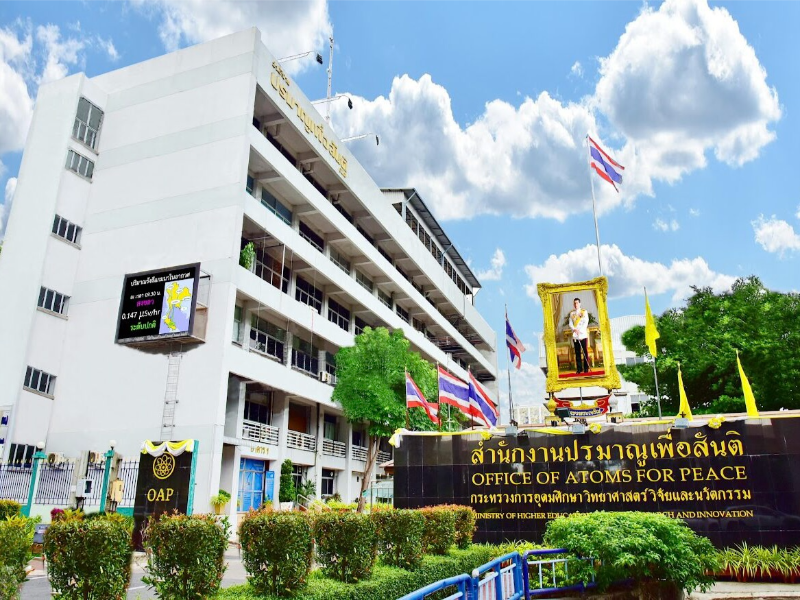- Regulates nuclear and radiation safety standards in Thailand
- Ensures the safe application of nuclear energy in various sectors like healthcare, agriculture, and industry
Ensuring nuclear safety and regulation in Thailand
The Office of Atoms for Peace (OAP) plays a critical role in overseeing the safe use of nuclear energy and radiation in Thailand. Established in 1961, OAP operates as the national regulatory body responsible for ensuring the security and safety of nuclear activities in the country. Working closely with the International Atomic Energy Agency (IAEA), OAP follows international safety standards and ensures that nuclear energy applications in sectors like healthcare, agriculture, and industry are used safely and effectively. The organisation’s commitment to public safety and environmental protection underpins its regulatory processes.
OAP’s responsibilities include licensing nuclear facilities, conducting safety inspections, and monitoring radiation exposure to ensure compliance with global norms. The Office also works to maintain transparency by communicating nuclear safety protocols and their applications to the public. By developing and enforcing regulations, OAP creates a controlled and secure environment for the use of nuclear technology, making Thailand a safe place for the peaceful use of atomic energy.
Also read: Ramkhamhaeng University: Thailand’s open education pioneer
Also read: Inox: Advancing Thailand’s digital frontier
OAP’s role in nuclear safety and technology promotion
In addition to its regulatory duties, OAP is actively involved in promoting the peaceful uses of nuclear energy across various sectors. One of its main focuses is in healthcare, where nuclear technology is used for diagnostic imaging and cancer treatment. The office ensures that radiation exposure in medical procedures remains within safe limits, benefiting public health while minimising any associated risks.
Moreover, OAP supports agricultural and industrial applications of nuclear energy. These applications include enhancing agricultural productivity through irradiation techniques, which help in pest control and the preservation of food, as well as improving industrial processes like material testing and quality assurance. The OAP’s collaboration with organisations such as the Thailand Institute of Nuclear Technology (TINT) ensures that nuclear research and development contribute positively to the country’s economy and technological advancement.

